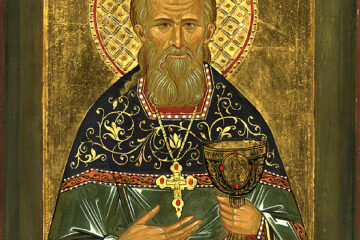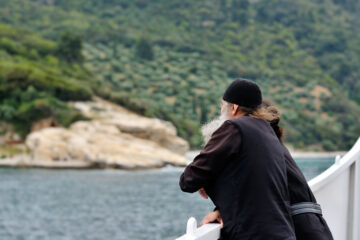Fr. Andreas Agathokleous
The notion that the Church has laws for all people and all circumstances appears not to be the case in practice. Moreover, such an idea would negate the uniqueness of the person and would amalgamate all people together, which would contravene God’s plan.
When John the Baptist preached his message of rebuke, he roused the souls of the crowds who came to him to be baptized and asked him: ‘What shall we do to be saved?’. The Gospel (Luke 3, 10-14) tells us that he answered in this manner.
To the crowds he said:
- If you have two tunics, give one to someone who has none. If you have food, do the same.
To the publicans, who collected taxes on behalf of the Romans:
- Take no more than that which the law allows
To the soldiers who asked him he said:
- Don’t take money from anyone under false pretenses or violence, but make do with your wage.
The question ‘What should I do to be saved’ is a serious, existential one and of the utmost importance for our journey in life. As, of course, is the answer. In the books of the Elders we read that, at a time when modern means of communication and transport didn’t exist, people who really desired to find an answer to their questions would walk for days. And when they found it, they would keep it reverently and faithfully, knowing that it was an answer from God.
Since they are of an existential nature, the question and the answer have to do with the presence of the Holy Spirit. In other words, the answer which will be given by the Holy Spirit through the person being asked depends directly on the desire and sincerity of the person asking.
Metropolitan Kallistos (Ware) says that the Church isn’t some kind of legal entity which is governed by a rigid legal code, but is rather the Body of Christ, the communion of the Holy Spirit. As Christ’s envoys, be we bishops, the clergy or lay people, we’re here to proclaim to the world the feast and the generosity of the Savior. We take as our model, Jesus with Zacchaeus, Jesus with the woman taken in adultery; with the woman who was a sinner and washed Christ’s feet with her tears. To these and countless others he offered new hope, a fresh start, a second chance.
As a mother, the Church embraces everyone, whatever they’re like, however they live. It doesn’t look so much at what its children are doing now, but at what they can become. History’s full of instances of people who transformed their sinfulness into sanctity, confounding all reason and criticism. God’s grace heals weaknesses and supplies what’s lacking for those who want to change and strive.
We shouldn’t equate the behavior of the Church with that of the State, as regards all kinds of immoral or sinful people. The latter has to require compliance with its laws to prevent society from becoming a jungle. Forgiveness and mercy on the part of the Church doesn’t imply amnesty on the part of the State. Nor, of course, does it mean acceptance of sin, any more than a doctor would accept sickness and leave a patient without care.
In a world of conglomeration, harshness and non-acceptance of human weakness, the Church of Christ accepts, welcomes and embraces all sinful and immoral people in order to transform them, through their repentance, into holy and beautiful children of God.
Source: pemptousia.com




0 Comments